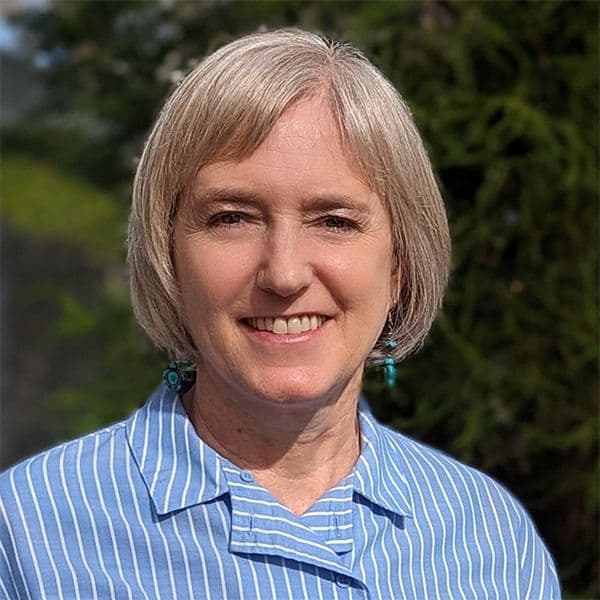News
Sep 29 '24
High School Students Enjoy College for a Week: AI, IoT, and Drones for Agriculture
#AIFS
#Education

Modern high schools offer computer science, engineering, and robotics classes. Students have numerous opportunities to learn coding or attend drone camps, so what makes the AIFS AI Tech Camp different?
According to Rowan, a sophomore at Davis Senior High, “It’s not like a normal camp for high school students. You learn so much more than you expect.”
Esther, a rising junior, agreed. “It’s packed with so much education, but the people who put it together really try to make it fun and interesting and to just make it the most beneficial experience for the students.”
UC Davis faculty Ali Moghimi and Yufang Jin offered more than just drones at the last summer camp. The AI Tech Camp showed how AI and robotics are being applied in agricultural and environmental work, and exposed students to new career paths. The four-day camp introduced students to artificial intelligence (AI) and photogrammetry, and allowed them to program microcontrollers connected to different types of sensors. And, yes, they got to fly drones, too!
Getting Started
The AI Tech Camp began with talks on the importance of agricultural and environmental monitoring, along with examples of farming challenges such as identifying plant disease or tracking soil conditions. The students were introduced to remote sensing platforms and different types of sensors. They discussed AI technologies, including a variety of machine learning (ML) algorithms.
“Using advanced technologies like AI and drones in agriculture is imperative to driving innovative farming practices and increasing efficiency,” says Dr. Moghimi. “As we face growing challenges in global food production, it’s crucial to educate the next generation to help farms adopt these technologies. By introducing students early on to the skills they will need to integrate AI, robotics, and IoT into agricultural practices, we are not only preparing them for future careers but also equipping them to lead the transformation toward more efficient and resilient agricultural systems.”
Drones, or UAVs
On the second day, the students began learning about drones – drone technology, platforms, components, and sensors. To get ready to fly in the afternoon, they learned about safety, FAA regulations, and risk management. Then they got to plan their missions and fly the drones!
Some drone controllers are like video game controllers. One student worried he wouldn’t be good at it because he didn’t play video games much, but he was happy to find he was able to get the hang of it.
The next morning started out with a visit to the UC Davis Center for Spaceflight Research for a drone demonstration by AIFS Faculty, Zhaodan Kong, and postdoc, Peng Wei. The students learned how UAV swarms are being developed to help with early wildfire detection. Several drones were available for close-up inspection while Dr. Kong and his postdocs answered questions.
Later that day, the students learned about photogrammetry and practiced processing drone images using Pix4D and ArcGIS Pro. They were introduced to the types of information that could be extracted, how it could be applied to answer real-world questions, and how it could lead to better agricultural decision-making.
The Internet of Things
The final day of camp focused on the Internet of Things (IoT) and its applications in ag and the environment. Students learned about sensors, microcontrollers, and actuators in the morning, then got a chance to test their knowledge in the lab that afternoon.
The group received an introduction to programming including If statements, For loops, and Functions. These were new concepts for some and a solid review of coding foundations for others.
In the lab, each student had a microcontroller and different types of sensors to connect – temperature and relative humidity sensors, and a ping sensor to measure distance. They were able to execute certain challenges, such as making a parking sensor.
We interviewed several students and they loved their experience. While Rohan really liked using the software, other students found that flying the drones was their favorite part. Esther enjoyed all the instruction, but also loved hanging out on the UC Davis campus.
When asked what they would say to other students who are thinking about the camp next year, here are some of their responses:
“The professor and his colleagues, they’re very encouraging and supportive. You can reach out to them.”
- Mark
“It’s a lot of fun and you don’t need to have prior knowledge of anything. They’ll teach you everything.”
- Markos
“I just enjoyed being on campus. We got to go to a lot of cool places, we got to see a lot of cool drones. But also hearing from the people who work in this department and learning what they do. They really give you so much knowledge. It kind-of opened a new world for me as I’m considering what I want to do in my career.”
- Esther
Instructors:
Yufang Jin, Ph.D., Professor of Remote Sensing and Ecosystem Change, Environmental Scientist, Department of Land, Air and Water Resources, UC Davis
Ali Moghimi, Ph.D., Assistant Professor of Teaching, Department of Biological and Agricultural Engineering, UC Davis
Andrew Lyons, Ph.D., Program Coordinator, Informatics and GIS (IGIS) Statewide Program, Division of Agriculture and Natural Resources, UC Berkeley
Sean Hogan, Ph.D., IGIS Academic Coordinator II, Informatics and GIS (IGIS) Statewide Program, Division of Agriculture and Natural Resources, UC Davis















